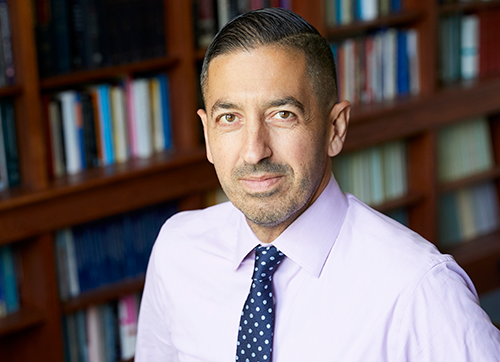Hope, and Health.

Hope, and Health
Vice President Joe Biden has won the 2020 US presidential election. There remains much to be resolved, not least of which will be President Trump’s concession. One can only hope that President Trump respects the outcome of the electoral process, avoiding the challenges that arise if the election’s resolution remains unsettled for some time.
As the political circumstances resolve, it seems reasonable to pause for a moment to reflect on the hope that comes with political renewal, and the inflection point a new administration offers towards creating a better, healthier world.
The Trump administration has often acted in ways that are inimical to the production of health. I have written about how the administration has embraced, in its rhetoric and its policies, a counterproductive approach to many of the factors that shape health. From its efforts to undermine the Affordable Care Act, to its withdrawal from the Paris Climate Agreement, to its targeting of immigrants and LGBT Americans, to its attempts to further fray our country’s social safety net, to its economic policies which deepen the inequalities which inform health divides, the administration has consistently deprioritized health. This is to say nothing of its mismanagement of the COVID-19 pandemic, where the administration’s willingness to downplay the virus and dismiss public health best practices has placed lives at risk.
In falling short, the administration has—however inadvertently—reminded the country of how important issues like climate change, inequality, social justice, and investment in public health infrastructure are to shaping a context that generates health. This lays the groundwork for the opportunity presented by the moment suggesting that this indeed is a moment for hope. Hope that a Biden administration will recognize that health, fundamentally, is created by the social, economic, and political forces around us, and that it is an investment in those forces that will create a healthier population. Hope that a new administration will adopt a posture of inclusion and respect for all, reducing the othering that have marked the past four years.
It is worth remembering that the hope of this moment is inextricable from the challenge of this moment.
It is worth remembering that the hope of this moment is inextricable from the challenge of this moment. The obvious challenge of the moment is the COVID-19 pandemic, which continues to take lives throughout the country. The Trump administration has acted with almost willful neglect of the pandemic. Fundamentally, the pandemic occasions a doubling down of both our investment in public health infrastructure and investment in shoring up the social, economic, and political structures that support health. The Biden campaign has certainly seemed to promise a more rational, thoughtful approach that recognizes this charge, and aspires to live up to it.
Whether the Biden administration follows through on the campaign’s rhetoric remains to be seen. Regardless of the actions of any single administration, however, the challenges to health remain legion. This should have been an election about health. It was clear in the narrowness of the outcome that health did not overwhelmingly win—far from it. This suggests that we have a tremendous amount of work to do, perhaps much more work than many of us thought, to make the empiric case and the moral argument for why health matters and why it is central to our shared aspirations. The moment has taught us that such an approach requires deep humility about the complex motivations of populations—and the complex aspirations of populations. This should, to my mind, push us to a careful reexamination of how we communicate about health and how we communicate about our priorities around restructuring our world to the end of creating health. This shall require some careful reflection on the implications of the election, which we will be perhaps better served with the dispatch of time.
We stand, at this historic moment, a community united by shared mission, purpose, and belonging around a vision of creating a healthier world.
We stand, at this historic moment, a community united by shared mission, purpose, and belonging around a vision of creating a healthier world. It is a powerful, animating force that certainly motivates me, and is, I think, centrally motivating for all our faculty, staff, students, alumni, and friends. It is a motivation embedded in an aspiration for health as a cornerstone of a better world—one that is inclusive and pluralist, which has space for everyone within it, regardless of identity, religion, or political beliefs. As we exit this election season, this is a moment to redouble our commitment to creating an inclusive community—one that welcomes all, including, at this moment, particularly those with political views with which we may disagree. We aspire to lead by example, to say to all that our school is a safe space to have the conversations that should be had in this country around how we prioritize health, around the place of health in our collective value set. We say this while recognizing the complexities and challenges in achieving these aims, and that there may be different perspectives about how we may get to a place of better health for all.
Before the election, I wrote:
“Building an edifice which fully supports health will take time and collective commitment, guided the values which inform everything we do at our school. Regardless of Tuesday’s results, we will continue our commitment to this work, to these values. Thank you for being part of these efforts, as we work towards a healthier world. We have much to do.”
This statement remains true. The work of public health continues, guided by our values as a field and as a school. Now, more than ever, is a time for public health.
Thank you to all members of our community for being a part of this project every day.
Warm regards,
Sandro
Acknowledgment: I would like to acknowledge the contribution of Eric DelGizzo to this Dean’s Note.
